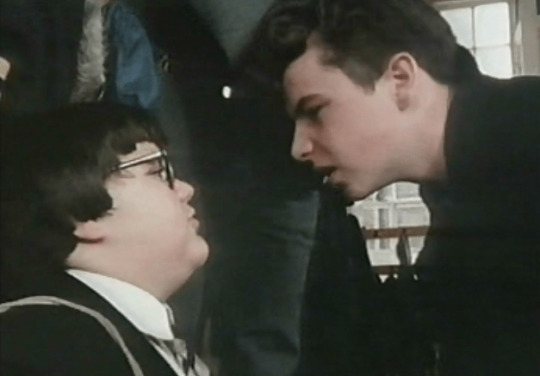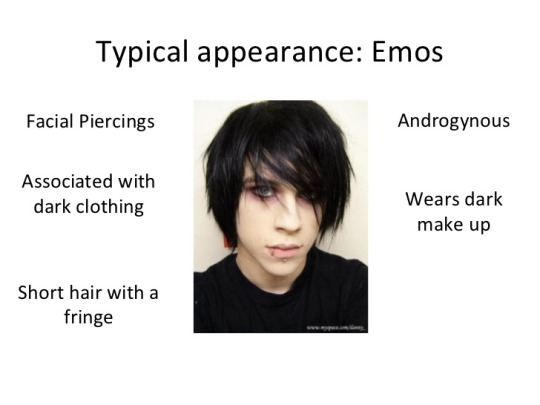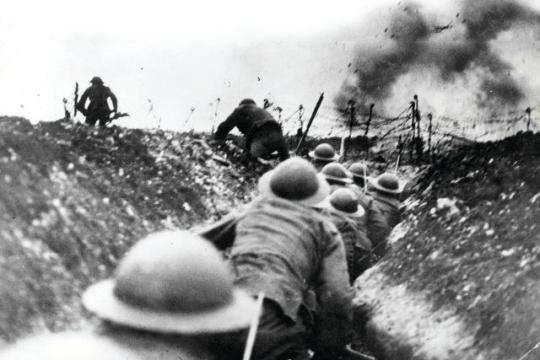Text
Why this year’s CAGs are the most accurate results schools have ever had?
There has been so much written and said about the government’s handling (does it really count as handling?) of the GCSE and A Level awarding process this year, most of it very critical. The U-turn towards using Teacher Assessment was greeted with cheers in many areas, though some, including those who opposed it in the first place, had grave concerns.
Cheating?
The main concern was that teachers would significantly over-estimate the outcomes for the students they teach: meaning that this year would result in grossly over-inflated grades. Then there were all the other knock-on effects that this would have, especially around unfairness for students in other years.
At first glance this would seem true, the famous Ofqual algorithm was lowering about 40% of grades overall, ergo the teachers were somehow at best inaccurate or as one or two of the wilder accusations suggested, ‘cheating’ in their grading.
I have written previously about how unreliable GCSE predicted grades were under the normal system , but with CAGs, the process was different. So, is this really the case that they are inaccurate and over-inflated? I would argue not and here is why...
1. The Process
Firstly they are not teacher assessments as the news and press would have you believe. Of course there is a strong element of teacher assessment within them, but they are Centre Assessed Grades, and are exactly that - assessed by the examination centre, not individual teachers.
Having been the architect of our school’s process for coming up with CAGs and having discussed with many other heads how they had gone about it, I strongly believe the process was fair. We started of course with teacher assessments - teachers looked at mocks, classwork, assessments, homeworks, attitude and many other factors to answer the question - as a best guess, what would this student achieve in his / her GCSE exam?
Then whole departments came together to analyse, question and moderate each other’s grades. Teachers provided evidence to back up their claims, if questioned. From the fire of this discussion, judgements were again adjusted and then the rank ordering began, with even more questioning, justifying and adjusting.
Finally, the information came to the SLT and it was again analysed, we also reviewed predictions from before the pandemic and overlay other sources of data such as the FFT data predictions for our students in each subject. This began another week of backward and forwards between SLT and Heads of Department. I don’t recall any other Quality Assurance system in any school I have worked in, being so rigorous. At the end of it all, we had Centre Assessed Grades that I could, hand on heart, sign off as being honest and reliable.
2. The Accuracy
As I have just explained, we clearly felt we had accurate CAGs, as I am sure nearly every other school in the country believed they had. So why, when all these CAGs come together, does the exam pass rate and gradings rise on previous years and the Ofqual algorithm need to reduce them by 40%?
The answer is fairly simple - the CAGs are showing what the students are capable of and should achieve, whereas exams often don’t.
Let me unpick that a bit more.
Every grade we entered as a CAG, we were confident any individual child could, in an exam, achieve. Not a single one was entered that was beyond a student’s capability. The difference is that, in exams, many students don’t achieve what they are capable of.
We have all looked at the results in August and been surprised at results where students have underachieved: this could be on a single answer, a paper or across a range of subjects.
Why might this happen? Any number of reasons such as:
external factors that knock their confidence or affect their performance: such as family issues on the day, missing a bus, falling out with a friend, boyfriend / girlfriend issues, not sleeping, not eating or drinking and another 1000 small issues.
Exam factors: being thrown by the wording of a question, or the example used in a question, distractions in the exam, misreading or rushing the question, missing a page and so on and so forth - I have heard hundreds of reasons.
I strongly believe that, with this year’s CAGs, what we are seeing is not an artificial inflating of student achievement but rather the removal of all those many reasons for underachievement. I would also go as far as to suggest that this year’s results will be the most accurate picture of the true ability of students that we have ever had. It is the other years that have given us inaccurate and depressed grades.
So should we replace exams with CAGs in future?
Actually I don’t think we should, at least not completely. I believe the CAGs this year were accurate because we expected them to be externally moderated, very aware that any artificial over-inflation might be taken out on other students in our school. We also knew we wouldn’t be held accountable for these results - as an SLT we had nothing to prove, beyond our competence to run a fair and equitable system.
Moving forward, however, I would fear the return of high stakes accountability and, with it, all the games, tricks, shortcuts and manipulation that were starting to be exposed by recent Ofsted inspections. This would pollute the process and be wide open to abuse and misuse.
So what is the solution? A mix of well moderated teacher assessment alongside reduced examinations with a reduction in high stakes accountability might take us to a place that not only recognises the true ability of the students whilst maintaining an external validation, which could only be a good thing. What that actually looks like I don’t know, but we can leave that to the professionals such as Ofqual.
Oh hang on....
7 notes
·
View notes
Text
Bullying
I make no apology for the length of this entry as the topic of bullying is a very emotive one. Where it occurs, it can be such a damaging and destructive set of actions, leaving the victims upset, hurt or, in a few cases, contemplating or going through with attempts at suicide. It is probably one of the biggest fears parents have for their child whilst at school and also something they feel unable to help with.

The scale of bullying: Once again, for those of us who were raised in the 70s and 80s, we are likely to have witnessed or experienced bullying on an industrial scale. These were the days before there was any awareness or acceptance of difference: the closest anyone got to neurodiversity back then would be if it was the name of a new wave pop group. Anyone with autism, ADHD or any other, fairly common, condition, was just seen as a ‘weirdo’, anyone who was slightly effeminate, or merely kind was ‘gay’ and anyone whose skin colour was darker than you would expect from a 2 week holiday in Skegness, was a N word or the Asian P word. These were just the verbal bullying, of course there was also the physical bullying, I think I was lucky to get through these years with both testicles intact, as they were treated like mosquitos – someone always looking to swat, flick, kick, stamp, punch or knee them, and the resulting excruciating pain provided the watching group with the highest form of hilarity. I guess it was probably different for girls. Fortunately, such sustained and ongoing bullying is very rare and, though parents should be vigilant, in the vast majority of cases, it is something that can be dealt with very easily and effectively by the school.
What is Bullying?: The key starting point for tackling bullying is knowing what bullying is. Most parents will be using their own experiences, possibly from school, but more likely form the media: whether that was watching Gripper Stebson with his 1950s teddy boy style, grabbing various Grange Hill characters by the throat as part of his dinner money pyramid scheme, through to Nelson Muntz giving Bart a wedgie on the Simpsons. Or maybe from stories or videos, some truly horrific, of young people being set upon and beaten up by groups of kids. None of these, however, help to clarify what bullying is.

There is no legal definition of bullying in the UK but, in a school context most would view it as ‘repeated behaviour which is intended to hurt someone either emotionally or physically, and is often aimed at certain people because of their race, religion, gender or sexual orientation or any other aspect such as appearance or disability.’
As well as knowing what it is, it is important to know what it isn’t, because there are many things that rather than having a negative impact upon our children, are actually valuable and important learning episodes (I can hear myself morphing into Oprah here):
- Falling out with each other – this happens and is an important part of their development into adulthood to deal with conflict with others. Unfortunately, far too many parents see this as bullying because their child might be upset as a result of it.
- Day to day rough and tumble – this particularly applies to boys as they grow up. There is some good science around the importance of ‘horseplay’ (Fry, D. P. (2005). Rough and tumble social play in humans / Pellis, S. M., & Pellis, V. C. (2012). Rough-and-tumble play: Training and using the social brain). Think of it like young animals that jump and climb and wrestle and fight. Having done thousands of break and lunch duties, I am very familiar with what is horse play and what is a bit more serious – the basic guide being are they all having fun, it is very easy to see if someone isn’t or if one individual is being targeted – that is where we step in.
- A one-off omission: for example not being invited to something outside of school.
- Not liking someone: we cannot make pupils like each other. This is another important learning point to help in growing up. I am sure we all have people in our own lives that we don’t like, but through our adolescent development, we have learned how to deal with that.
- Arguments: these happen all the time, as anyone who has been married will testify.
- A single act of telling a joke about someone. We have all been the butt of a joke at some point - usually funny for others, less so for us.
Of course if any of these things become repeated or several of them happen towards the same child, then yes this would then constitute bullying.

How to deal with bullying: this is what most parents want to know and is the point at which some parents go horribly wrong. So here is my step by step guide:
1. The most important thing is that the child tells someone. Staff in school are usually excellent at spotting things going on – I have lost count of the number of times I have been on duty and, amidst the mass of humanity that makes up lunch time, spotted a child looking a bit down, on their own or upset.
2. Watch out for changes in your child: mood swings, sudden aggression, withdrawal from family life (though take care as these are also the default setting for most teenagers.)
3. If your child can’t talk about it, get them to write it down.
4. If it involves social media, which increasingly it does, switch it off – delete the apps and don’t engage.
5. NOW CONTACT THE SCHOOL. I have put this in caps because this is the most important thing. Having discovered you think your child is being bullied, you will be feeling angry, shocked, protective, aggressive and maybe even feel you have failed your child. This heady concoction of feelings is not a good place from which to start to address the issue.
6. Work with the school: the vast majority of schools deal with these things on an almost daily basis. They know the other children, they see the interactions, they know the parents of the other child or children. They care deeply about your child and the other children and they will do what they feel is best.
7. If things don’t get any better, then escalate the matter within the school – schools are hierarchical and above a form tutor is a head of year, above them a member of the Senior Leadership Team and above them the headteacher.
How not to deal with bullying: the steps above should lead to the matter being resolved and your child returning to their usual happy, or at least apathetic, experience of school. However, I have had plenty of first-hand experience of parents who decide to handle the matter differently – none of these led to a better outcome than following my advice, and some led to far more serious outcomes for them.
- Don’t start the discussion off by being abusive or threatening the school for ‘failing your child’. Venting your anger on a poor receptionist won’t make the wheels move faster.
- Don’t start at the top. I have had many examples of parents contacting me directly, as headteacher, to deal with a falling out between two pupils. Though I have decades of pastoral experience, there are far more appropriate people to look into the matter. It isn’t that I don’t care, but the school and education system wouldn’t really be getting its money’s worth out of me if I spend 6 hours a day in ‘circle time’ with Year 7 girls who have fallen out.
- Don’t go above the top. On a number of occasions I have had parents decide that, rather than inform the school, they think the matter would be resolved quicker by going above the school to the Local Authority, Ofsted, The Diocese, local MP, Parish Priest, the press, the Pope or anyone else they could think of. Needless to say, none of these people are really in a good position to unravel the reasoning behind why Sally didn’t invite your Bethany to Cineworld last week.
- Don’t encourage your child to take matters into their own hands. “I’m sorry Sir but I have told him, if anyone says anything to you, you just punch them” or “You can’t tell me that you wouldn’t tell your son to hit them if they say anything.” Well-meaning as this advice from some parents is, it isn’t really great preparation for the world of work. For that day when little Billy grows up, gets his job in middle management and has a falling out with Steve from accounts and decides a good right hook might progress things. So unless you have grand plans for your child to move into the gangland underworld, it really isn’t good advice.
- Don’t take matters into your own hands with the parents. Often when parents raise a concern about another child bullying their own child, they will want to meet with the other parents. Nearly all schools will avoid doing this, not because we are being obstructive, but because a) the parents (usually) aren’t the people who have fallen out and b) both sets of parents will have only heard their own child’s version of events and will be overly protective. It doesn’t work. Likewise contacting the other parents by text, social media or be going round to the house – all of these are like trying to put a fire out armed with aerosols and petrol. I have witnessed parents going for each other outside the school gate, or picked up the pieces afterwards when one or more parents have been charged with assault.
- Don’t take matters into your own hands with the child. No matter what you have been told about the other child, they are still that, a child. I have known many occasions where a parent has approached a child directly to ‘warn them off’ like some sort of mafia enforcer. Now I don’t know how they have thought it would play out in real life, but the reality is usually that the child is with some friends, feels like they can’t lose face and so rather than say “Yes of course Mrs T, it was wring of me to behave like that towards your little Mickey, it won’t happen again, take care.” It ends up more “Who are you talking to? Get away you Pedo. I didn’t do anything. F*&k Off, I am going to get my dad on to you.” To be fair this approach does often end the initial bullying and is replaced by family warfare, police action and lawyer involvement.
Don’t arrange a ‘settler’. This is where both sets of parents arrange for the children to meet up and have a settler (a fight to resolve things). For many of you reading this, the very thought would be horrific, but for some of the communities I have worked in, this is the ‘honourable’ way to do things. I have known parents set up times / places for the fight, have rules around not jumping in and even drive their children to the event, like an evening at a Justin Bieber concert. This is not just for boys, I have known it happen with girls too and heard a child describe how her dad had watched her get knocked all over the place then afterwards suggest that the matter was no closed.
0 notes
Text
Who is who in the school system? Part 1 - the classroom.
For many people outside of education, despite having been through it as a child, it may all seem a bit confusing. This is especially the case when it comes to who is who behind the curtain of education. So here is my light-hearted beginners’ guide to the key players in school life, Part 1 the classroom.
***Warning some elements may contain tongues in cheeks***
1. The pupils: now as anyone involved in education will tell you, these are the most important people in the whole system. And sometimes this is even true! However, on many occasions it isn't, a lot of the time they seem to have been sent to try our patience. They can be broken down into different categories:

- The eager ones (usually female): these are the pupils who complete every assignment you set, and do it well, even that ‘build a motte and bailey castle over the holidays’ project that you thought nobody would do. They arrive back with a scaled model that looks like it would stand a good chance of winning the RIBA Stirling Prize. These monsters create almost half of the marking you end up having to do! They remember every ill-thought out promise you ever made and remind you of it. They also tell their parents far too much about what goes on in your lessons! Handy for observation lessons, work scrutiny and visitors.

- The lazy ones (usually male): this group shows no interest in anything you do. I believe they are in some sort of mental shutdown to conserve energy until they can go home and get back on their Xbox. When covering a topic like American Politics, you could have arranged for a personal visit from Barack Obama to explain the concept of the separation of power, but this would be met with a shrug and “meh”. Recent research has shown that they can be brought briefly to life with the promise of watching a Youtuber cement his head into a microwave oven at the end of the lesson if they complete a whole sentence.

- The ADHD child: they tend not to make much difference to the first 10 mins of the lesson as they haven't arrived. Once they do, however, then the fun begins: getting the coat off, sitting in the right seat, opening their book, why are you out of your seat again? No you can’t go the toilet, how did your pen leak? They will often seek to answer every question, not with the answer, but with some random experience they have had. These students are often the most difficult to teach but also the most likeable.

- The odd ones: this is a broad group of students ranging from the ‘too cool for school’ types to the downright bizarre. They operate in a different world that someone like us wouldn't understand and they believe they are living through the worst traumas life could throw at them (for a minority this could be something significant but for many, especially the Sebastians or Darcys, it might be that they are only going on one skiing holiday this year). This trauma usually manifests itself in their appearance - emo, goth or whatever the latest version of teenage angst is. Though often just one in a class they will gather in together at break and lunchtimes to share this angst of life and black nail varnish. They did enjoy a brief period of popularity when the Twilight Saga was in the cinemas.
2. The teachers: we have all had our own experience of different types of teachers ranging from the Mr Chips / Dead Poets’ Society through to the blubbering wreck of a supply teacher mid-breakdown.

- The Newly Qualified Teacher (NQT): these are the lambs to the slaughter - bright eyed and bushy tailed, looking younger and younger each year. They are a product of the modern school system - they have no recollection of smoking in the staffroom, having to cover another teacher every time you were free, getting high from the banda machine, gathering in the hall to watch the school telly (in secure frame and on its stand), running sports teams every weekend. They have come to change the world - pupil by pupil! They are usually without a family so will happily spend each evening reading educational blogs, updates and research, then planning wonderfully creative lessons and resources. This makes them ideal to befriend and ‘mentor’ a) as you will then have access to all their lessons and resources and b) despite their efforts, they are hopeless at dealing with behaviour, especially that difficult Year 9 class - which you have eating out of the palm of your hand. Quid pro quo.

- The cynic: these were once the NQTs but are now just shy of being able to retire as they had to re-mortgage in order to pay off their ex-partner. They are a malevolent force within a school, like a growing cloud of doom. They will greet every initiative with derision, usually making a comment about how “we have done this years ago” and “it didn't work back then”. They are looking to make life as easy as possible and so their lessons consist of a TES downloaded PowerPoint or faded worksheets that pre-date the Magna Carta. Can often be found leaving at 3.02pm and take great joy in ‘sticking it to the man’. Likes real ale.

- Mr or Mrs Perfect: these are a very rare breed but most schools have at least one of them. They are the staff that just seem to have cracked it. Their lessons are amazing, the students love them, their marking is not only done but done properly and they still find time to run after-school intervention, revision and extra-curricular activities. They embrace change and bring an energy to the school. All the parents want their child taught by them and, in most other walks of life, they would be drug tested for this level of performance. Avoid mixing with ‘the cynic’.
3. The support staff: thanks to the government’s chronic underfunding of education over the last 8 years, this group of staff are becoming rarer and rarer!
- The teaching assistant (TA): the good, the bad and the cardi. TAs are amongst the lowest paid and in some ways least valued members of staff and they can be a real mix.
The good are invaluable: they identify where they can add most value to your lesson - whether that is helping prepare resources, working with individuals or groups to address the failures of your teaching, or heading off behaviour issues before they begin (like the secret service of classroom support). They love working with children and make the children and the teacher better and more effective. Sadly they tend to not be around long as their many skills often lead them into teacher training.
The bad are a nightmare: their contribution to any lesson is usually negative. They often don't like the pupils and manage to turn your calm and orderly classroom into a war zone in just a few words and actions. They also don't like the teacher and resent the fact that the teacher is paid so much more than they are and for doing what? Standing there yapping on! They will invariably be late to lessons, will start talking loudly whilst you are mid-teaching sentence, shout at children they don't like - setting the cherubs off. They also spend much of break and lunchtime spreading their negativity and after school will gossip to anybody who will listen. Often to be found alongside the cynic.

The cardi: these are the cardigan wearing brigade. They have been at the school for centuries and are known and loved by all. They have worked with every generation of every large family at the school. They know were everything is within the school and are the go-to point of contact and advice on anything. In smaller schools, they are the glue that holds everything together. Like a cross between Les Dawson’s Cissie and Aida and Mary Poppins.
- The technicians: these are a very unique group. They share DNA with coach drivers and museum staff in so far as the usual have a pathological dislike of children.

The science technicians reside in their prep rooms where all manner of chemicals and scientific equipment can be found, or at least could be found if you were allowed in but they guard these rooms like a mythological Kraken. Frodo and Sam had an easier task than those students sent to the prep room on a message or to ask for additional equipment. The skeleton in the corner of these prep rooms is not a teaching tool but the remains of the last teacher to ask for lab equipment without completing the request form 3 weeks earlier.

The IT technicians also often have their own room or cave often set out with multiple screens and resembling the headquarters of a Bond villain. Their dislike of young people is only eclipsed in scale by their ability to be sarcastic. The legendary sarcasm can be combined very effectively with a look of combined disgust, disbelief and derision by anyone who suggests a possible solution or asks an ‘ignorant’ IT-based question. They love to hear people suggest “you should turn it off and on again”.
0 notes
Text
Life in the inner city: dodging the bullets
My first senior leadership role was in an inner city Catholic comprehensive. Now I know Amanda Spielman has mocked the tendency of some teachers to race to be the most deprived school and wearing deprivation as a badge of honour, but this was officially one of the most deprived areas in western Europe never mind in England.
Being over 16 stone and with a shaved head, I would often be called upon to deal with disturbances in school but especially outside of school. Apart from being a ‘big unit’ I have no other qualifications for dealing with these incidents, but that has never stopped me and has led to some very interesting situations!

Anyway, on this occasion there was some local cherubs acting suspiciously in the estate across from the school and I answered the call to investigate. Striding confidently down the short access road away from the school, I reached the corner with the main road. Each step away from the school saw my misplaced confidence ebb slightly and so it was with a touch of caution I looked round the corner and across the road to the estate.
Nothing obvious to see, in fact all seemed fairly quite. That was until I heard a crack followed very quickly by a thud in the wall behind me. Shocked, I turned to see some dust settling. I stood puzzled as to what had just happened? Had someone thrown something at me? But there was nobody near me. I looked round the corner again: no sight or sign of anybody. Then again a crack followed by a thud which seemed even nearer to me on the wall behind.

It was at this point I realised someone was shooting at me. Now I must have missed the module of the NPQH on being shot at so instead opted for the ‘run like hell’ approach. Racing back into school, locking the gate and getting the office to call the police.
As mentioned this was a challenging area with plenty of gang related activity which occupied and drained our constabulary colleagues and, added to the public sector cuts they have experienced, meant that I was not a priority! So me and a few of the SLT kept guard on the entrance until they arrived.
Feeling safer with our boy and girl in blue by my side in their body armour, I walked with them back down the access route. I was also convinced that, as they had taken so long to arrive, even Lee Harvey Oswald would have lost interest and moved on. As we reached the corner I peeked round and suggested the shots had come from across the road by the grassy knoll, though the reference was wasted.

I then showed them the wall where the shots had landed. At this point I was expecting gasps of shock and mutterings about my bravery, possibly even a mention in despatched for my bravery in the line of duty. A medal? Well if you think so, but I am just doing my job etc. These musings were soon shattered by a noise far more wounding than the cracks from earlier on: it was the giggling from the two officers.
Puzzled, I enquired as to which part of the attempted assassination they were finding amusing. In between their giggles, they were keen to point out that the shots were ‘only’ an air rifle, which they figured from that distance would be wildly inaccurate and, even if it had hit me, wouldn’t kill me, maybe blind but not maim. With my pride in tatters, I thanked them for coming out and sent them off to search the estate.
Obviously when I returned in to school I figured the air rifle knowledge was a need to know issue, so happily soaked up the warm comments about my bravery from the office staff over a cup of coffee and some biscuits. As far as I know, my would-be assassins were never caught but a few months later we did employ our own security guard. I was involved in the selection process and we opted for the guy who wore glasses - well you cant be too careful with your eyes!
#teaching #assassin #shooting #JFK
1 note
·
View note
Text
Why GCSE predictions are a pointless exercise.
At this time of year many parents of Year 11 pupils will be getting sent mock GCSE results and, worse still, GCSE predictions. In fact some schools will have been sending these predictions since Year 10 or even Year 9 for those schools who operate a 3 year Key Stage 4.
For many parents these predictions will be seen as a highly accurate, almost scientific assessment of what their child will get. Sadly, these ‘predictions’ are completely pointless, inaccurate, a work of fiction, and here is why:
1. How has your child been assessed? Most schools will generally use a previous GCSE paper as a mock but, owing to time constraints, very few will use the full GCSE set of papers (eg maths has 3 separate papers), rather just one or maybe a bastardised set of questions from each of the different papers. This is very important as it will only provide a partial view of a child’s progress, not the full picture as each set of papers has its own specific challenges and difficulties.
2. When are the predictions being made? This is one of the key issues that ends up frustrating parents, let me explain. Earlier in the course, say end of Year 9 (for 3 year KS4) or end of Year 10, the students have only covered a certain amount of the course content. In most schools, they generally cover the easiest topics first and save the harder stuff until Year 11, when the students have a greater understanding and, hopefully, greater maturity. This means students will often perform strongly on these sections which some teachers and schools will take at face value and report as an inflated GCSE grade. This is one reason why so many students see their performance fall in Year 11.
3. You cant predict GCSE grades! The way the new GCSEs are graded means that you cannot predict how a student will do. They are norm referenced rather than criteria referenced: in short this means the grade boundaries are decided after the papers have all been marked, not based directly upon the quality of the child’s answers. This means that if a child did exactly the same in a GCSE in 2 different years they could easily achieve 2 different grades because the grade boundaries move to ensure similar numbers of students achieve each grade each year.
I know from my own experience last year, we had 48 students within the previous year’s grade boundary for a Grade 5, but the grade boundary increased by 4 marks and all of these students then achieved a Grade 4.
This is one of the major shocks for parents and governors regarding data. Schools will often use predictions as concrete proof of where a year group or individual child is but the reality is that it is meaningless and wildly inaccurate.
At best a school can tell you how a child scored when they sat a ‘mock’ paper and that if that child had sat that paper when it was issued then that child would have gained X grade. Anything else is just snake oil!
0 notes
Text
Life in the inner city: dodging the bullets
My first senior leadership role was in an inner city Catholic comprehensive. Now I know Amanda Spielman has mocked the tendency of some teachers to race to be the most deprived school and wearing deprivation as a badge of honour, but this was officially one of the most deprived areas in western Europe never mind in England.
Being over 16 stone and with a shaved head, I would often be called upon to deal with disturbances in school but especially outside of school. Apart from being a ‘big unit’ I have no other qualifications for dealing with these incidents, but that has never stopped me and has led to some very interesting situations!

Anyway, on this occasion there was some local cherubs acting suspiciously in the estate across from the school and I answered the call to investigate. Striding confidently down the short access road away from the school, I reached the corner with the main road. Each step away from the school saw my misplaced confidence ebb slightly and so it was with a touch of caution I looked round the corner and across the road to the estate.
Nothing obvious to see, in fact all seemed fairly quite. That was until I heard a crack followed very quickly by a thud in the wall behind me. Shocked, I turned to see some dust settling. I stood puzzled as to what had just happened? Had someone thrown something at me? But there was nobody near me. I looked round the corner again: no sight or sign of anybody. Then again a crack followed by a thud which seemed even nearer to me on the wall behind.

It was at this point I realised someone was shooting at me. Now I must have missed the module of the NPQH on being shot at so instead opted for the ‘run like hell’ approach. Racing back into school, locking the gate and getting the office to call the police.
As mentioned this was a challenging area with plenty of gang related activity which occupied and drained our constabulary colleagues and, added to the public sector cuts they have experienced, meant that I was not a priority! So me and a few of the SLT kept guard on the entrance until they arrived.
Feeling safer with our boy and girl in blue by my side in their body armour, I walked with them back down the access route. I was also convinced that, as they had taken so long to arrive, even Lee Harvey Oswald would have lost interest and moved on. As we reached the corner I peeked round and suggested the shots had come from across the road by the grassy knoll, though the reference was wasted.

I then showed them the wall where the shots had landed. At this point I was expecting gasps of shock and mutterings about my bravery, possibly even a mention in despatched for my bravery in the line of duty. A medal? Well if you think so, but I am just doing my job etc. These musings were soon shattered by a noise far more wounding than the cracks from earlier on: it was the giggling from the two officers.
Puzzled, I enquired as to which part of the attempted assassination they were finding amusing. In between their giggles, they were keen to point out that the shots were ‘only’ an air rifle, which they figured from that distance would be wildly inaccurate and, even if it had hit me, wouldn't kill me, maybe blind but not maim. With my pride in tatters, I thanked them for coming out and sent them off to search the estate.
Obviously when I returned in to school I figured the air rifle knowledge was a need to know issue, so happily soaked up the warm comments about my bravery from the office staff over a cup of coffee and some biscuits. As far as I know, my would-be assassins were never caught but a few months later we did employ our own security guard. I was involved in the selection process and we opted for the guy who wore glasses - well you cant be too careful with your eyes!
#teaching #assassin #shooting #JFK
1 note
·
View note
Text
My First Year: Where’s Barry?
In my first year of teaching, way back, I was working in a very challenging and deprived area. Looking back, this was an ideal foundation to build and develop the skills and resilience needed for the world of teaching. At the time, it felt like being a British Tommy at the Battle of the Somme, with many helpful and supportive fellow soldiers, but no gun, no strategy, and some very angry Germans who didn't necessarily want to learn!

Anyway, in my first year I was unable to get a job in my own subject , or any other individual subject. Instead, as the summer holidays drew near and desperation for a job increased, I finally got employment at this school as a teacher of general subjects. This meant I taught 10 different subjects to Year 7 (first years / 11 yr olds). So not only was I the new boy, but in almost all of those subjects, I was the ‘non-expert’, as such my timetable that year consisted of the lowest ability classes and all Year 7 (1st years in old money).
Over the year me and the lowest ability class (7D) saw an awful lot of each other: French, history, geography, science, English, Maths and so on. However, I still remember my first encounter with them like it was only yesterday. They were only a small class, who I will introduce you to in other posts, but for now the important fact is there were only about 14 of them. That is great, I hear you say, small class size - capture their hearts and minds with really personalised learning - well you would think so.

Anyway back to our first encounter, I think it was an English lesson and I arrived at F14 (my own teaching room) with all the eagerness of a new puppy but tempered by that ubiquitous piece of advice given to all new teachers: don't smile before Christmas! So with my most earnest voice, I introduced myself, gave out the books and explained what we would be doing - so far so good, this teaching lark was going to be a breeze.
Buoyed by my seeming mastery of education and with the students writing their own names on the front of their books in silence, I decided to do the register. Now this has the potential to go badly wrong but, at this stage, 7D had only known each other for a day, so no axis of evil had been formed and their initial nervousness resulted in them actually behaving.
Off I set through the electronic register: Danielle, Michael, Anthony, and so on all responding with a “Here sir” or a “Yes sir”, all except Chris, who forgetting he had left the predominantly female environment of primary school, had responded “Yes Miss”, but even this registered only a minor chuckle from my ensemble of young minds. In short time the electronic register was done, all 14 of them present and corre..... Hang on, they were sat in pairs and one child was on their own. Even my rudimentary mathematical knowledge, which I was going to rely on heavily this year to teach the subject, knew odd from even. If everyone was in pairs, except Michael, then there cannot be 14 kids.

I tried the register again: Danielle, Michael, Anthony etc Once again getting a favourable response form each child as I completed it again, even Chris managed to respond with a gender appropriate pronoun (though even at the end of my year teaching him English, he would be blissfully unaware of this grammatical achievement). Once again all 14 names were responded to. At this point I doubted myself and counted the kids in front of me - 13. In my naivety I then asked “Who isn't here?” This is close to being one of those classic teacher sayings, like “Put your hand up if you are not here” or “Put your hand up if you cant hear me at the back”. Fortunately they were as clueless as me, most had only just met.
By now they had all completed writing their names, even Chris, and were watching my growing puzzlement with interest, like a pack of hyenas getting that first initial whiff of blood. Undeterred, I did the register yet again, in fact 4 more times. Listening out to hear if someone was throwing their voice or pretending to be someone else. Yet again 14 responses and 13 kids. I can safely say that this was not part of my lesson plan that I had spent an hour on last night. Something needed to be done, something radical.

I had an idea. This time when I did the register they would stand and each child had to sit down after giving me their name. Genius. Again we went through the register, me calling the names, they responding and then sitting down. Now you are probably ahead of me on this, but the flaw in my plan was that, whilst doing the electronic register, my focus was more on the computer and names rather than the students. So I get to the end and of course all are sat, but still only 13.
WTF? They never taught about this at Teacher Training College. By now boredom was starting to kick in alongside the ADHD many of them had but, with it not being routinely diagnosed back then, were unaware of. I needed to do something and quick, otherwise my F14 was going to turn into a scholastic version of Lord of the Flies.

I had a better idea. I called all the students to the front of the class and slowly called the names again, after which, each child was to walk slowly back to their seat and sit down. Any passing teachers would have peeped in and thought some wonderfully adventurous teaching was taking place with students on their feet at the front of the class, little did they know I was struggling to do the register.
We began: Danielle, pause and she lumbered to her seat, Michael, again a short wait and he walked over, Anthony, the same. Eventually we got to Barry. A verbal response but no movement. I called his name again, and again “Here Sir” but no movement. The sound was slightly muffled and coming form the back of the room. As one we all looked towards the back of the room, where a row of large wooden cupboards were lined up. These were my cupboards but owing to my relative inexperience, had not been filled with old textbooks, exercise books, homework and worksheets from my many years on the off-chance they might be useful in the future.
We all edged nearer as we followed the voice to the cupboard in the middle. Slowly I reached across to the handle and slowly opened the wooden door to reveal to me and my fellow observers, a young boy sat curled up on the floor of the cupboard. We starred at him in disbelief, he looked up at us rather non-plussed and asked “What are we doing today sir?”

This was my first meeting with Barry. It is safe to say Barry was one of the more complex and challenging students I have ever met, but also one of the most entertaining. Strangely enough I didn't feel anger towards him at that moment, simply bewilderment. It turned out he was a regular cupboard dweller, no doubt to feed some deep rooted need. We were able to coax him out to a desk and the lesson was able to continue.
There were, however, 2 key things that happened as a result of this:
1. As part of my behaviour management I was able to use ‘cupboard time’ as a reward with Barry, which actually worked and gave me an advantage over my colleagues.
2. Despite filling in the electronic register several times, in all the theatre of Barry’s cupboard-based ventriloquism, I had forgotten to ‘send’ it - so day one and I was warned by the Head of Year of how important the register is to be done and to be accurate - little did he know!
#teaching #school #behaviour
0 notes
Text
Introduction
Everyone has an opinion on education because everyone went to school (well almost everyone!), this is just mine. Though I do have over 25 yrs teaching experience to back it up. :)
1 note
·
View note